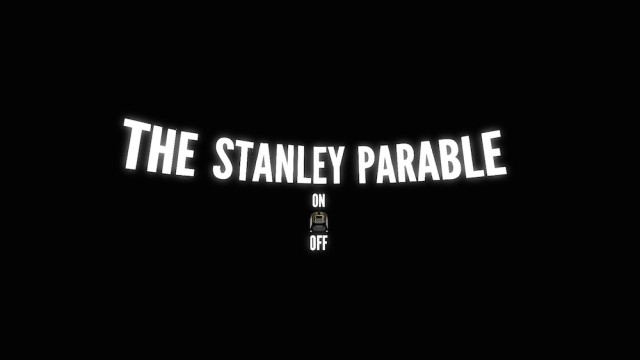Imagine, if you will, the following as narrated in a British accent. Or don’t. It’s really up to you.
It was a late spring afternoon when the reader discovered a new post at a beloved but recently quiet site. The reader’s initial enthusiasm was somewhat dampened when it was discovered that the post took a video game as its jumping off point. “Wasn’t the last post about a video game?” the reader sighed, but continued anyway. This was, after all, the sort of site where interest was often found in unexpected places. Whether motivated by fascination or nostalgia, the reader moved past the somewhat awkward third person narration of the opening paragraph, and began to read in earnest.

While videogame developers like BioWare (Knights of the Old Republic and Mass Effect) and Quantic Dream (Heavy Rain and Beyond: Two Souls) have generated a great deal of sound and fury by designing games on the premise of meaningful narrative choices, there has been in the past few years a quiet movement of smaller games such as Pathos, Unmanned, and The Stanley Parable which throw into question the very possibility of meaningful choice in an “interactive” narrative environment.
Thus was the context established. Well, one part of the context. A context rather than the context. Well, at least we’ve established that The Stanley Parable is a game. Right? We did do that?
“Great,” thought the reader, “not only is this a video game post, but it’s the kind of post that spells ‘video game’ as ‘videogame,’ creating a bright shining line between people who are treated as being in on the conversation, and those who aren’t.” Still, the reader continued, perhaps against their better judgment, maybe just because the graphic that broke up the page after the paragraph provided just a bit of hope that it would provide a break in the argument as well.

In fact, meaningful choice is something of a romantic concept. It’s rare to face a single, decisive moment of crisis. The things we tend to look back on as pivotal moments are more often retrospective compressions of ongoing preferences, habits, and behaviors. We don’t take the red pill once. We take it every day, with or without food, as directed.
Or the blue one. Or maybe both.
“That isn’t entirely wrong,” thought the reader, “but it’s all a bit existentialist. How often does what actually happens have anything to do with the choices we think we’re making? How often are choices not even available? If my checking account is overdrawn, do I get to choose between ordering a pizza or shopping for vegetables? Was Elizabeth Bennet ever actually given the opportunity to ‘choose’ between Wickham and Darcy? Do I choose to be offered a job? To get sick or not? How often outside of a story or a game do we actually have that sort of control?”

To play The Stanley Parable is to be confronted with a series of meaningless choices, not all of which are even immediately apparent. Most of these choices have an impact on the story which is exaggerated to absurdity. That is, the player doesn’t normally chose between one outcome or another so much as find themselves spun off into parallel universes. While confronted with a series of effectively binary choices, the player is really deciding how they want to perform their role within the game. Cooperatively? Argumentatively? Is the player charmed and compelled by the narrator, or annoyed by being told what to do? Will the player persist in their chosen narrative path, or will they simply stop playing?
Eventually, everyone stops playing. The only questions are when and how.
“Hmm,” thought the reader, who Googled a review, downloaded a copy, never opened it, played once, was unsatisfied, played again and again, increasingly infuriated, got all the jokes, told everyone, avoided spoilers, never thought about it again, clicked away from the page, lived a long and productive life, never quite accomplished every ambition, traveled, stayed home, all of these things all at once at one time or another.
